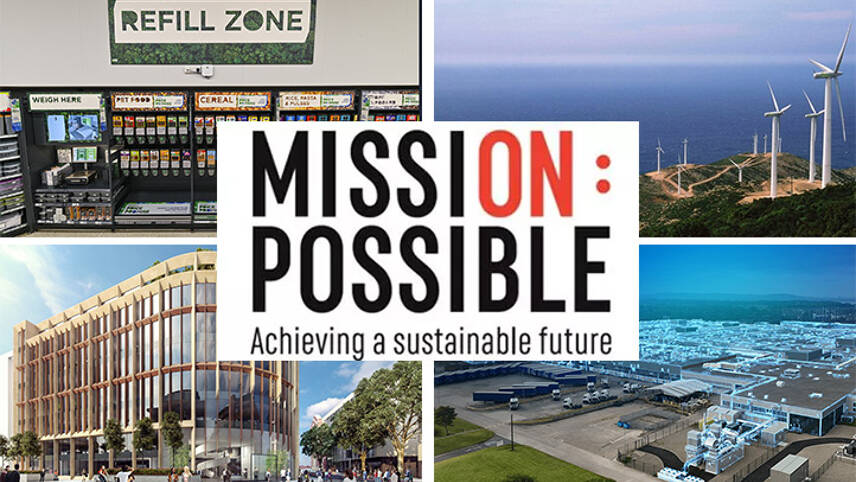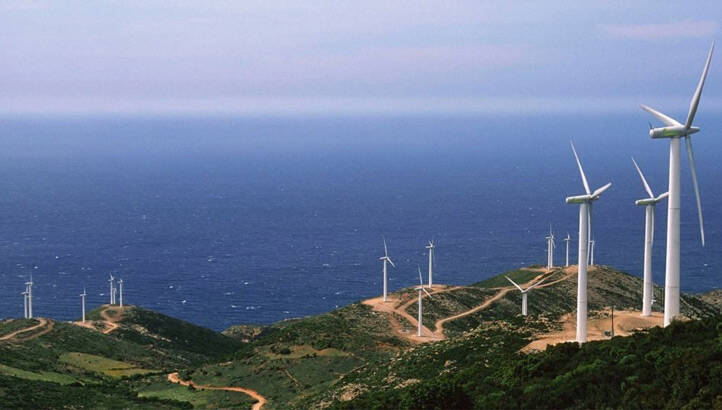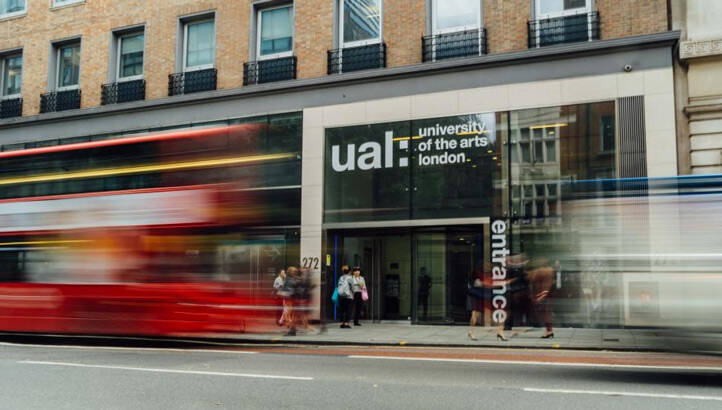Register for free and continue reading
Join our growing army of changemakers and get unlimited access to our premium content

Published every week, this series charts how businesses and sustainability professionals are working to achieve their ‘Mission Possible’ across the campaign’s five key pillars – energy, resources, infrastructure, mobility and business leadership. We are returning with this series after a two-week break around COP27.
Across the UK and the rest of Europe, leading businesses, cities, states and regions are turning environmental ambitions into action. Here, we round up five positive sustainability stories from this week.
ENERGY: Construction competed at 50MW wind farm in Greece
Last month, EY published its latest bi-annual ranking of national markets in terms of how attractive they are to renewable energy investors. Austria and Greece were the biggest climbers, each being ranked five times higher than in the previous edition. EY noted that Greece’s work to streamline onshore wind licensing contributed to its improved score.
Now, Greece has another new onshore wind farm. Iberdrola confirmed this week that installation has been complete at the 12-turbine Askio III wind farm in Galatini, Western Macedonia. The project included an extension of the nearest substation and the laying of 30km of cable.
Iberdrola has stated that if the project was not completed before winter, there could have been significant delays, because snow accumulates on the surrounding mountains most years. Now, 54,000 homes will benefit from the clean electricity generated at the facility this season.
RESOURCES: Asda guarantees that refills will be cheaper than pre-packaged products
A survey of more than 2,000 adults in the UK earlier this year, conducted by City to Sea, found that 40% believe that refillable or other plastic-free options are always more expensive than pre-packed products. Cost concerns were found to be a major barrier to refilling in the cost-of-living crisis.
It is welcome news, then, that Asda has promised shoppers using one of its stores with a refill offer that refills will always be cheaper than packaged alternatives. The supermarket, like City to Sea, found that cost perception was a major blocker to scaling refill, through research it conducted in partnership with WRAP.
Refill is available in Asda stores in York, Milton Keynes, Glasgow (Toryglen) and Leeds (Middleton). Shoppers at these locations are able to pick up refillable cereals, pet food, snacks, tea, coffee, pasta, rice and pulses. Also on offer are ‘pre-filled’ cleaning products, shower gels and hand washes from Unilever-owned brands.
Asda’s senior director of sustainable commercial activity Susan Thomas said: “As well as being cheaper, refill allows customers to buy the exact amount they need, helping them stick to budgets, while at the same time reducing food waste at home.”
MOBILITY: Ford pledges £150m to EV manufacturing in Britain
The Society of Motor Manufacturers and Traders (SMMT) made a call to action to the UK Government earlier this week, asking for a concerted “action plan” to safeguard the future of automotive manufacturing. The influential trade body said would-be investors are dissuaded by high energy prices and skills shortages around electric vehicles (EVs).
Then, on Thursday (1 December), Ford confirmed that it would increase investment in EV-related skills and infrastructure at its Halewood hub in Merseyside from £25m to £150m. The investment secures jobs for 500 people.
Ford said in a statement that the location is “integral” to delivering its EV plans across Europe. It will end the sale of new petrol and diesel cars in Europe by 2030; a 2035 date has been set for vans. The investment should enable the plant to increase EV production capacity by 70%.
“This is an all-important next step for Ford towards having nine EVs on sale within two years,” said Ford UK’s chairman Tim Slatter. “ Our UK workforce is playing a major role in Ford’s all-electric future, demonstrated by Halewood’s pivot to a new zero-emission powertrain, and E:PRiME’s innovation at Dunton in finalising the production processes.”
THE BUILT ENVIRONMENT: Fiera Real Estate sets 2035 net-zero target
British real estate investment manager Fiera, which manages more than 330 properties globally with a value of more than $5.6bn, has this week pledged to become a net-zero business by 2035. The target covers emissions across all scopes, including embodied carbon and financed emissions.
Fiera has worked with Planet Mark to measure its emissions and draw up a plan to address its Scope 1 and 2 emissions. It has acknowledged that these emissions accounted to a “small” proportion of its overall footprint, making progress here a priority first step.
The business has pledged to target net-zero for all new developments, updating the requirements for all assets held within its development funds in the UK. It will also draw up plans to address emissions from existing properties.
“We all have a responsibility to accelerate action against climate change and to contribute to the achievement of credible carbon reduction targets,” said Fiera UK’s global head of ESG Jessica Pilz. “Our net-zero carbon pathway makes a clear commitment to achieving net zero by 2035 and our objective is to deliver on this, despite the headwinds we are facing in the market.”
SUSTAINABILITY LEADERSHIP: Three UK universities signal end of oil and gas recruitment on campus
It has often been stated that one of the biggest challenges to the net-zero transition is the need to dramatically change education and training offerings to create a skilled workforce. There was some positive movement in this space this week as the UK Government unveiled a £9.2m plan to upskill workers in the energy, heating and buildings sectors to ready them for installing energy efficiency measures and low-carbon heating.
Elsewhere, the University of Bedforshire, the University of the Arts London and Wrexham Glyndwr University have all this week taken moves to discourage graduates from taking careers in high-carbon industries. The universities have adoped a policy explicitly banning oil, gas and mining firms from working with their careers services, meaning that such firms cannot attend recruitment fairs or post listings on their digital services.
The move has been taken following campaigns by student-led charity People and Planet. The organisation has already succeeded in getting Birkbeck to make the same commitment.
Wrexham Glyndwr University’s Students Union president Lauren Hole said the news is “yet another example of our University’s continued effort to implement positive change for our students.” She added: “We hope that this will act as a catalyst for neighbouring Welsh institutions to follow suit in striving for excellence in both ethical and sustainable practice.”







“Discouraging high carbon industries”!!! Universities!
Two non-carbon sources of power are available, natural (wind, solar), and nuclear. Only nuclear is under our control, like it or not!
If controllable energy is required, only carbon and nuclear are available.
Wind and solar are fine in the right geography, but that is not in the UK.
It would not surprise me if the non-carbon supporters were also averse to the nuclear alternatives, would Ms Hole care to comment?
Richard Phillips